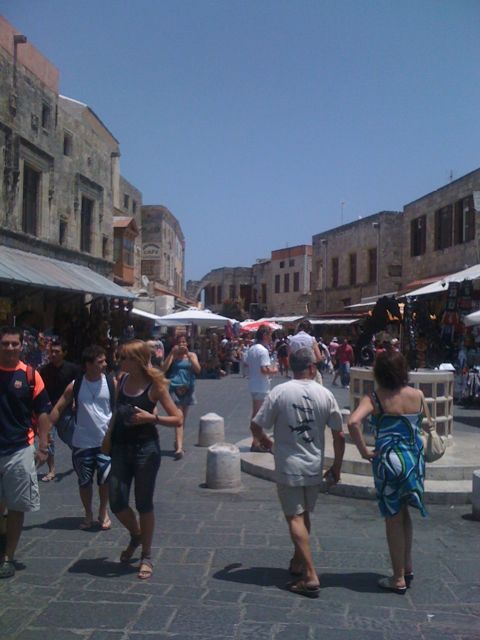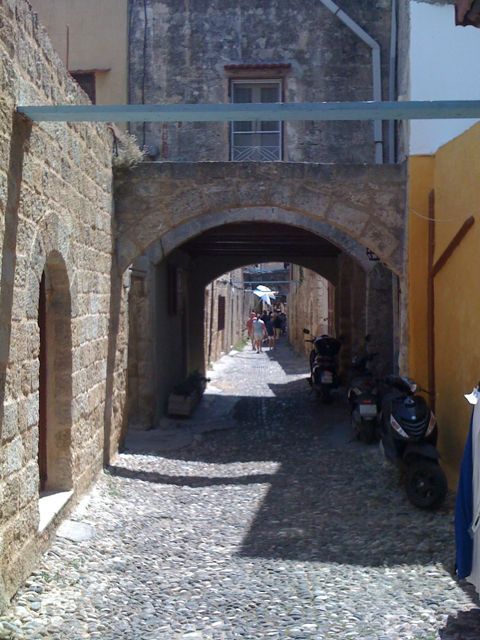Today we visited the old city of Rhodes. We were going to catch a bus, but after we’d waited 30 minutes the only bus we’d seen had gone straight past the stop because it was full. We’d been warned that this might happen – the public transport on the island is patchy at best. In the end we shared a taxi with another couple which was certainly more efficient, if a little less ‘authentic’.
When we arrived, we headed straight into the old walled city, entering via the liberty gate. The old town is a real warren of narrow, cobbled streets, with many shops, specializing in leather goods and jewellery. The shop keepers were much less pushy than some places we’ve been (notably Turkey) – so it was possible to browse without coming under undue pressure to make a purchase. Sarah bought a couple of belts and a pair of sandals.
We pretty much the length of the walled city and had a look at the ‘ramifications’ as Sarah said (questioning revealed that this was a mixture of ramparts and fortifications – apt either way as they are massive!).
All the buildings are obviously very old, and many are supported by buttresses and arches that cross over the streets below. There is plenty of evidence of the Ottoman occupation as there are quite a few mosques in the city, as well as churches, both ruined and surviving.
We had lunch in a little taverna tucked away in the back streets (the whole place is quite like the lanes in Brighton), which was very nice traditional Greek dishes, cooked in a kitchen that looked to be the owner’s former front room.
We then headed for another gate in the wall and had a quick look at one of the three harbours – it must have been a deep water one as there was a huge cruise liner moored there.
This took us back to the taxi rank (by the maritime gate) and we got a taxi back to the hotel. The ancient mercedes was driven by a young guy who was telling us about the feeling towards the Greek government over the IMF loan and the economy in general. It was interesting to hear the opinion of a local person. His view was that Greek should not have joined the single currency – it had caused prices to rise significantly and was hurting both locals and tourists alike.


